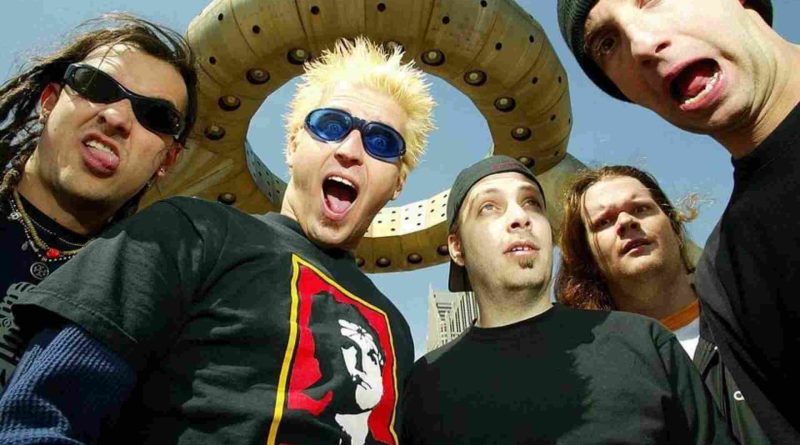Outcasts Among Outcasts: The Offspring’s Enduring Journey
Platinum pop-punk pioneers, the Offspring, have always danced to their beat, proudly wearing the badge of outcasts among outcasts.
“In today’s narrative, it’s trendy to reminisce, ‘We were the misfits of our youth,'” muses Dexter Holland, the band’s frontman, connecting from their lavish recording studio in Orange County. “But for us, it was an absolute truth in high school. It was all about looks, sports, and popularity. Just look at us!”
Kevin “Noodles” Wasserman, the band’s guitarist and Holland’s enduring counterpart, leans forward, tapping his thick-lensed spectacles. “And you should’ve seen me with braces and headgear,” he chuckles.
Thirty-seven years into their musical journey and two decades after their unexpected UK chart-topper, “Pretty Fly (For a White Guy),” the band still embodies the essence of teenage misfits. Yet, in their latest album, “Let the Bad Times Roll,” youthful angst has gracefully evolved into middle-aged reflection. With politically charged tracks, a poignant piano ballad, and even a humorous take on midlife intimacy struggles titled “We Never Have Sex Anymore” (ironically underscored by horn arrangements), the Offspring navigate the terrain of maturity with ease.
“Today’s radio scene questions guitars in 2021 like relics of a bygone era,” chuckles Holland, reflecting on the challenges of aging within the punk-rock realm. “But being outsiders is our natural habitat. Over time, people have grown more accepting of us. We take musical risks now, and it doesn’t faze anyone.”
Like many outsiders, the duo discovered solace in punk rock. It not only provided emotional refuge but also a financial success. Their breakthrough album, “Smash,” released in 1994, sold a staggering 11 million copies, solidifying its place as the world’s best-selling independent album. However, success came with a price as they found themselves shunned by the very punk-rock community they sought acceptance from.
“Outcasts among outcasts,” remarks Noodles dryly. “That’s life, isn’t it?”
Their journey began a decade earlier, fueled by the energy and ethos of California’s punk scene but constrained by Orange County’s conservative suburban landscape. The Offspring emerged as a weekend pastime, driven by passion and, admittedly, beer.
“It wasn’t about building a career,” nods Holland. “We just wanted to be cool. Hair metal dominated the scene, and punk bands struggled to find venues.”
Their breakthrough came gradually, grinding through performances at local parties and veterans’ halls until they secured regular gigs at Berkeley’s 924 Gilman Street, a haven for all-age punk shows. It was there that they cultivated their fan base alongside future luminaries like Green Day and Rancid. Signing with Epitaph Records, they released albums that earned critical acclaim but modest sales.
Then came Nirvana. The seismic shift in the music landscape following Kurt Cobain’s demise coincided with the release of “Smash,” catapulting the Offspring into mainstream success. Tracks like “Come Out and Play” resonated with audiences, offering a glimpse into the urban turmoil of Los Angeles.
With newfound fame came skepticism from the punk purists, accusing them of selling out as they departed from Epitaph for a major label. Despite facing commercial setbacks, the Offspring persisted, delivering albums like “Americana,” which dissected contemporary American culture with biting satire.
“Punk rock is about observation, not preaching,” asserts Holland, reflecting on the social commentary woven into their music.
Their breakthrough hit, “Pretty Fly for a White Guy,” soared to the top of charts worldwide, cementing their status as pop icons. Despite the accolades, the band remained grounded, eschewing Hollywood glitz for authenticity.
In the decades since, the Offspring have embraced their status as perpetual outsiders, crafting anthems that resonate with audiences across generations. With “Let the Bad Times Roll,” they confront the challenges of the modern era while staying true to their punk roots.
“We may not win awards, but our fans are our greatest reward,” concludes Holland, embodying the band’s unwavering ethos. “And that’s all we need.”

